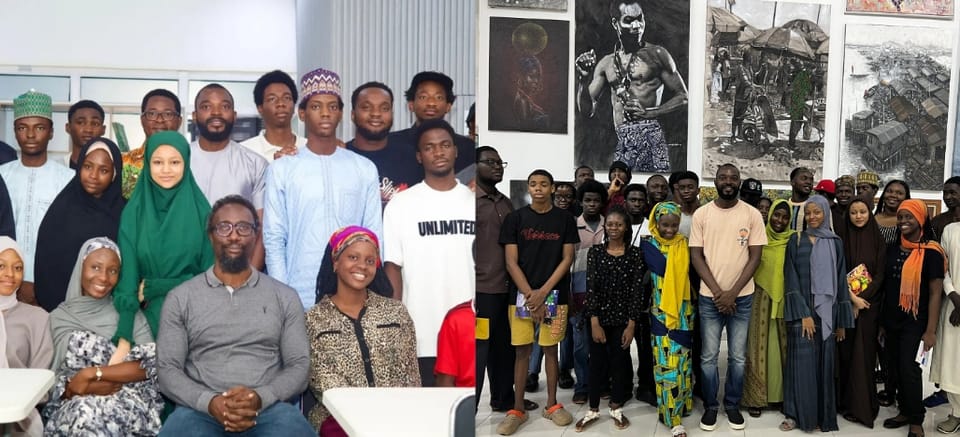AUST Students Explore Nigerian Diversity and Culture Through Field Trips

In a bid to deepen their understanding of Nigeria's rich cultural heritage and leadership, students from the African University of Science and Technology (AUST) in Abuja embarked on two educational field trips in September 2024. These excursions, part of their Nigerian People and Culture course, took the students to both the Dike Chukwumerije Centre and the Nike Arts Center, where they explored the importance of diversity, art, and leadership in shaping the nation. On September 13, 2024, the students visited the Dike Chukwumerije Centre in Abuja, where the acclaimed writer and lecturer, Dike Chukwumerije, guided them through the principles of Managing Diversity for National Unity. With Nigeria being home to over 250 ethnic groups, Chukwumerije emphasized that the nation's strength lies in its ability to embrace and manage diversity through communication and peaceful coexistence. "Communication is key," Chukwumerije stated. "A nation cannot coexist without understanding and a willingness to embrace differences." The trip encouraged students to reflect on how Nigeria’s diversity could be harnessed for national growth and unity, urging them to consider how inclusivity and tolerance can strengthen the country’s future. A week later, on September 20, 2024, the students visited the Nike Arts Center, a renowned hub for Nigerian art and culture. Led by resident artists, the students toured the center’s impressive collection of traditional artworks, sculptures, and artifacts that represent the diverse cultural expressions across Nigeria. A highlight of this visit was the Nigerian Leaders Wall of Fame, where Dr. Bosco, AUST’s General Studies lecturer, delivered a lecture on Nigerian leadership. The session took the students on a historical journey, reviewing the nation's leaders from Independence to the present day. The lecture sparked a lively discussion, with students reflecting on the impact of leadership on Nigeria's development. One question, in particular, ignited debate: “Who, in your view, is Nigeria’s best president?” These two field trips provided the students with a comprehensive understanding of the importance of both cultural diversity and strong leadership in shaping the future of Nigeria. Through their firsthand experiences, the students gained deeper insights into the country’s complexities, from its cultural roots to its political challenges. The trips were a resounding success, with students leaving both the Dike Chukwumerije Centre and the Nike Arts Center enriched with new perspectives on diversity management and the role of leadership in national development. .As Nigeria continues to navigate its diversity, these educational excursions serve as a timely reminder of the importance of embracing differences while fostering unity for national growth.
